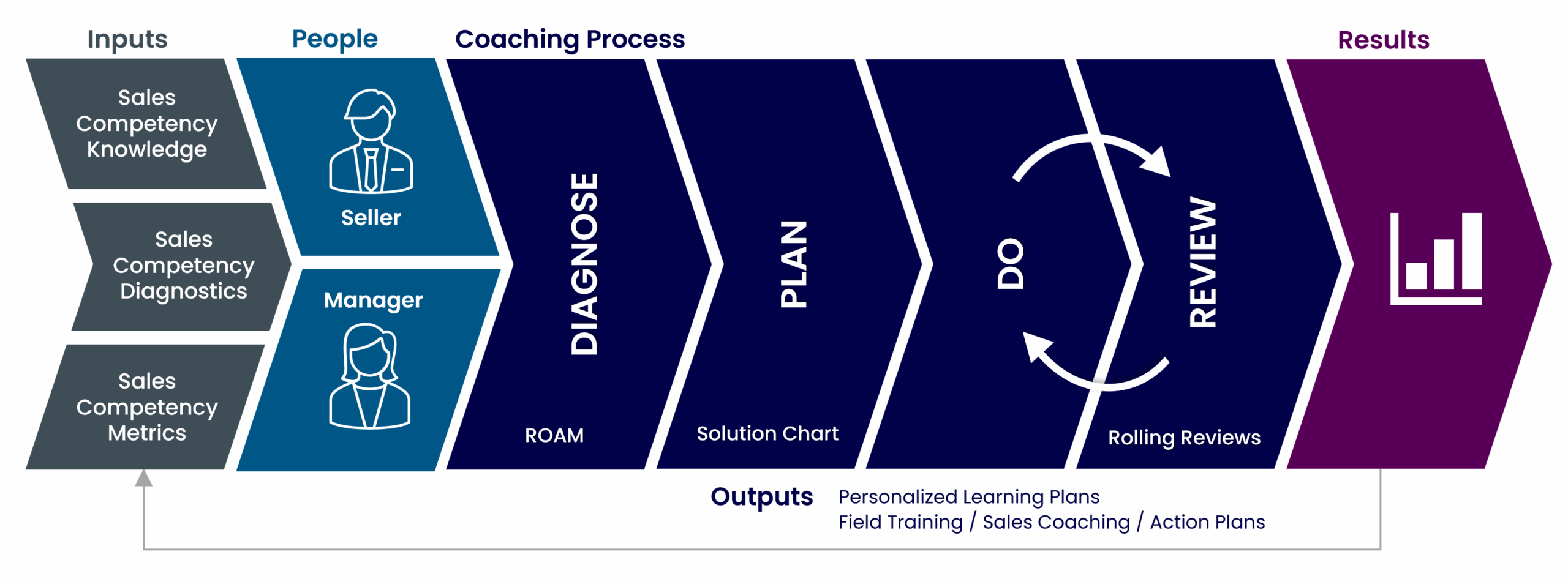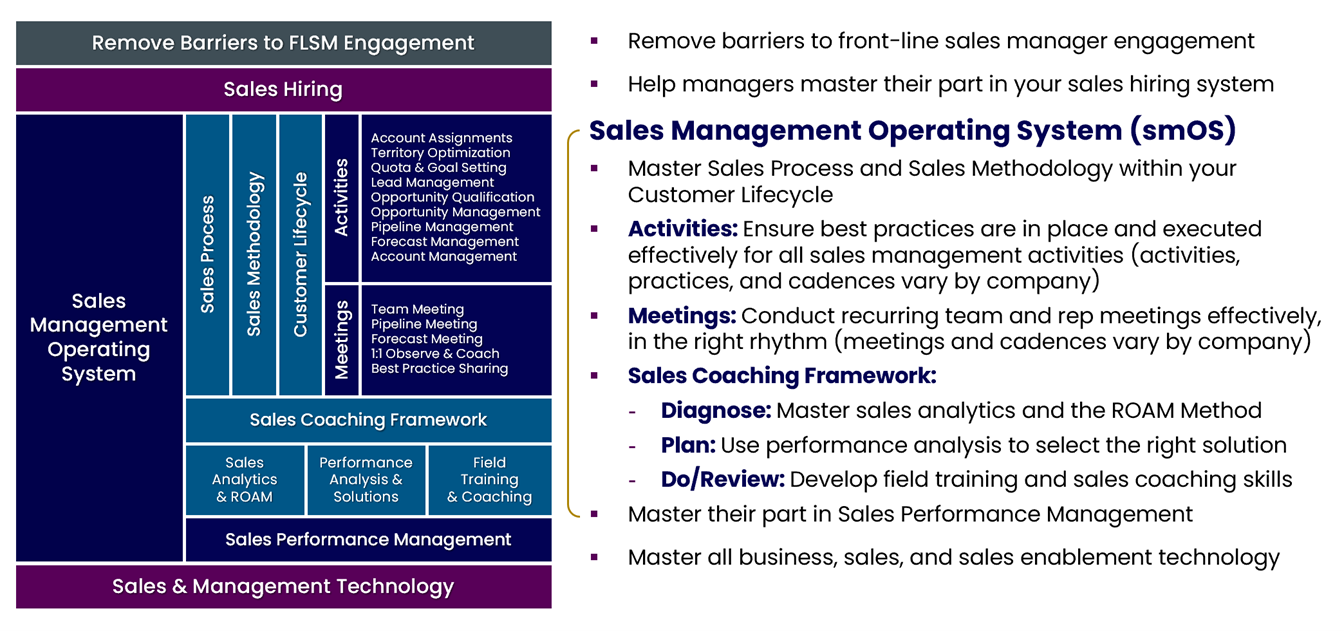In many distributors, the path to sales management is paved with good intentions and poor preparation. High-performing salespeople are often promoted into leadership roles with little more than a pat on the back and a new title. While their selling skills may be exceptional, their readiness to lead a team is often lacking. The result? A long learning curve, a costly gap in performance, low sales team morale, and hampered growth.
This article explores the critical need for structured training for first-time sales managers, early-career leaders, and even possibly seasoned managers who never received formal development. Drawing from my experience, research on what top sales managers do differently than the average, and industry insights, I’ll examine why companies must rethink how they prepare their sales leaders. This includes the business risks of skipping proper development, outlines common challenges new managers face, and provides a roadmap for preparing sales managers to succeed – from day one (or before).
The Hidden Gap in Sales Leadership Development
Sales organizations are notorious for promoting top performers into management roles without adequate preparation. It’s a well-intentioned move meant to reward success with the hope it will scale, but it often backfires. The skills that make someone a great seller don’t automatically translate into effective frontline management.
According to research by CEB Global, 85% of employees receive no new manager training prior to switching into the role of manager. Due in large part to their never learning best practices and how to avoid the top new-manager pitfalls, 60% of new managers underperform during their first two years.
Sales managers are the linchpin of revenue execution. They are the vital connection between company strategy and field implementation. They shape daily behaviors, drive performance, build culture, and reinforce priorities. In distribution, where sales cycles rely heavily on relationships, solution selling, and territory stewardship, frontline managers matter even more.
The cost of this underperformance is staggering: lost revenue, higher turnover, and missed opportunities for growth. Yet, many companies still rely on informal, ad hoc learning, if any at all.
The problem isn’t just a lack of training. It’s a lack of intentional development. Sales managers are expected to coach, forecast, hire, onboard, motivate, and lead – all while hitting their own targets. Without a clear understanding of their new responsibilities and the skills to execute them, many flounder.
The Unique Challenges of First-Time Sales Managers
The transition from individual contributor to manager is one of the most difficult shifts in a professional career. For salespeople, this leap is even more complex. They’re moving from a role where success is personal and performance is measurable, to one where success is collective and leadership is nuanced.
Distributors often promote from within, which is commendable. But it comes with a hidden risk: sellers are elevated into leadership roles without clarity on how their role is changing or how to succeed in it. The result is predictable confusion and missed potential.
Avoiding Common Pitfalls

Early missteps can have long-lasting consequences. New managers often fall into traps like micromanaging, avoiding conflict, or trying to be everyone’s friend. These behaviors erode trust and undermine team performance.
Structured training helps managers recognize and avoid these pitfalls. It provides a safe space to explore scenarios, reflect on their instincts, and build better habits from the start.
Some of the most common challenges include:
Role Confusion
Many new managers are unclear about what’s expected of them. Are they still responsible for selling? How much time should they spend coaching? What does “managing performance” actually look like?
Without a clear role definition, managers default to what they know – selling. This creates a leadership vacuum and leaves their team unsupported. You must address this head-on, outlining the core responsibilities of a sales manager and how to balance them effectively.
Moving from Peer to Leader
One of the first hurdles new managers face is redefining relationships with former peers. This shift can be awkward and emotionally charged. Without guidance, new managers may struggle to assert authority, set boundaries, or hold team members accountable.
The Sales Management Foundations course begins with this exact challenge, helping new managers step confidently into leadership. It’s not just about mindset; it’s about equipping them with the communication and emotional intelligence skills to lead with clarity and empathy.
Lack of Coaching Skills
Coaching is often cited as the most important responsibility for sales managers. But most new leaders have never learned how to coach. What passes for coaching is often advice-giving, deal rescue, or war stories. Real coaching requires structured conversations, diagnostic listening, behavioral feedback, and a development mindset.
Fear of Conflict
New managers often hesitate to hold others accountable. Whether it’s from a desire to preserve relationships or fear of making mistakes, avoidance becomes common. But failing to address underperformance or behavior issues creates resentment and erodes team trust.
Time Management Struggles
Sales managers must juggle one-on-one meetings, forecast calls, pipeline reviews, team meetings, rep development, hiring, onboarding, customer escalations, and internal reporting. Without a system, many feel overwhelmed, reactive, and ineffective.
Why Sales Management Isn’t Just “Selling Plus”
There’s a persistent myth in sales organizations: that great sellers will naturally become great managers. But leadership is not an extension of selling. While there is some overlap that can be built upon, it’s mostly a different discipline with a different focus.
Here’s just an example of what changes:
- Instead of focusing on your pipeline or territory, you focus on ten pipelines or territories.
- Instead of optimizing your own approach, you learn how to develop others.
- Instead of solving problems directly, you help others solve them.
- Instead of relying on personal accountability, you create team accountability.
- Instead of just measuring activity, you drive behavior change and improvement.
These are not natural extensions of selling success. They require training, tools, and practice. In distribution, where reps often manage territories independently, have long-standing customer relationships, and make judgment calls daily, managers must be skilled in influencing rather than controlling. That’s not intuitive. It must be learned.
Coaching Is a Skill, not a Trait
One of the most important responsibilities of a sales manager is coaching. Yet, most managers have never been taught how to coach effectively. They may give advice, share stories, or offer encouragement, but that’s not coaching.
Effective coaching is structured, intentional, and focused on behavior change. It requires listening, questioning, observing, and guiding, not just telling. Managers must dive deep into this skill to build a repeatable coaching rhythm that drives continuous improvement.
Sales Excellence Requires Systems Thinking

These are not intuitive skills. They require frameworks, tools, and practice. Managers must focus on team leadership, while developing a structured approach to managing performance, pipeline, territories, accounts, and process.
When managers operate without a system, they rely on gut instinct and reactive decision-making. A structured system brings consistency, clarity, and scalability.
The Cost of “Learning on the Job”
When organizations take a sink-or-swim approach to management, they assume that new managers will figure it out over time. But this approach is not only inefficient; it’s expensive.
Revenue inconsistency
Without coaching and inspection, sales results become uneven. Rep performance varies widely. Managers spend more time reacting than improving execution.
Inconsistent Coaching and Development
Without training, managers coach inconsistently or not at all. This leads to uneven performance across the team and missed opportunities for growth. Sellers don’t get the feedback they need, and managers don’t know how to help them improve.
Poor Forecasting and Pipeline or Territory Management
Untrained managers often struggle with forecasting accuracy and pipeline discipline or management of multiple territories. They may rely on rep-reported data without scrutiny or fail to identify risk early. This creates surprises at the end of the quarter and undermines credibility with senior leadership.
Rep Disengagement
When reps don’t receive feedback, support, or development, morale drops. High performers get frustrated. Low performers fly under the radar. New hires flounder.
Perhaps the most damaging thing is the impact on team morale. Poorly trained managers often create environments of confusion, frustration, or neglect. High performers leave. New hires flounder. The team becomes reactive instead of proactive.
The cost of replacing a salesperson can exceed 1.5x their annual salary. Investing in manager training is not just a development expense – it’s a retention strategy.
Manager Burnout
New leaders who lack structure quickly become overwhelmed. They struggle to manage competing priorities, fall into reactive cycles, and experience high stress. Burnout or turnover becomes likely.
Customer Impact
Poor leadership trickles down to customer interactions. Inconsistent support, missed follow-ups, or low rep accountability all diminish trust with clients.
These are not hypothetical risks. They show up in the data – in missed quotas, declining margins, higher turnover, and lower customer retention.
What Effective Sales Manager Training Looks Like
So, what does good manager development look like? It’s not a single event. It’s a structured path that addresses role transition, skill development, and long-term support.
Effective programs include the following elements:
A Clear Role Definition
Start with clarity. What does the role of sales manager entail in your business? What are the core responsibilities? How should time be allocated across coaching, hiring, team development, pipeline inspection, forecasting, and internal collaboration?
Mindset Shift Support
New managers must understand that their job is no longer to be the top rep. Their role is to enable others to succeed. This requires humility, patience, empathy, and a focus on long-term development over short-term wins.
Coaching Frameworks and Models

Systems and Tools

Practice Opportunities
Don’t just teach concepts. Offer opportunities to apply them. Use role play, peer discussions, and scenario planning. Reinforce learning through spaced repetition and guided practice. We seem to recognize how important this is for training salespeople now, but managers do not often receive the same support. They need it, too.
Onboarding and Development Support
Help managers onboard new reps effectively. Teach them how to accelerate time to productivity, communicate expectations, and reinforce skills over time.
Leadership Skill Development
Beyond sales management tasks, focus on interpersonal skills. Emotional intelligence, communication, conflict resolution, and change management are essential for long-term success.
Ongoing Reinforcement
Don’t make training a one-time event. Use a cohort model or recurring workshops to continue developing managers. Provide just-in-time learning, peer forums, and coaching for the coaches.
The 3Ps: Prepare Prior to Promotion
While this may seem like a stretch for organizations who haven’t historically provided any management development, it is the single best piece of advice I can offer.
I once helped a company develop an 18-month program for their high-potential salespeople. Now it’s true that this was a Fortune 50 corporation, but in just a few years they had an entire bench of potential managers to promote.
For smaller organizations I’ve seen everything from 3-month to 9-month programs. Some considered graduation to be readiness, others used relief assignments where candidates covered for managers during vacations and received feedback about how they performed during their assignment, and some others incorporated a more formal certification. But they all saw a significant improvement in the results from newly promoted managers. The 3P method of Prepare Prior to Promotion is a smart business strategy.
Tailoring for Distribution: What to Emphasize
While much of this applies across industries, distributor sales managers have unique needs. Sales often happen in distribution through relationships and service. Reps often operate independently. And customer expectations are high. That means managers must:
- Be proactive in reinforcing behaviors that build customer trust.
- Know how to coach reps with different levels of experience or tenure.
- Maintain clarity on margins, pricing discipline, and solution selling.
- Understand the value of pipeline coverage, account management, territory planning, and buying and sales process alignment.
- Collaborate with your purchasing, operations, and customer service functions effectively to support both their teams and ultimately, their customers.
Structured training for distributor sales managers should reflect these realities. It must be practical, behavior-focused, and tailored to frontline execution.
Closing Thoughts: It’s Time to Rethink Sales Manager Readiness
Sales managers drive your revenue engine. They don’t just monitor numbers. They shape execution. They build teams. They translate strategy into behavior.
Promoting a top-performing rep into management without preparing them is a gamble. For many distributors, it’s a common practice – but it doesn’t have to be.
If you want consistent results, scalable execution, and a strong leadership bench, prepare your managers. Build a foundation before expecting performance.
Ask yourself:
- Have we clearly defined what our managers should do and why?
- Have we given them tools and frameworks to lead effectively?
- Are they equipped to coach, inspect, develop, and hire?
- Do they operate with intention, or are they simply reacting?
If the answer is unclear, you may already be feeling the impact. But the good news is that it’s solvable.
Sales leaders aren’t born. They’re developed. And for distributors, developing them isn’t a luxury. It’s a strategic necessity.
If you’re a CEO or senior sales leader, ask yourself: Are your managers truly ready to lead? If not, the time to invest in their development is now. Because when your managers grow, your team grows, and so does your bottom line.
Mike Kunkle is an internationally recognized expert on sales enablement, sales effectiveness, sales training, sales coaching, sales management, and sales transformations.
He’s spent over 30 years helping companies drive dramatic revenue growth through best-in-class enablement strategies and proven effective sales systems.
Mike is the founder of Transforming Sales Results, LLC where he designs sales training, delivers workshops, and helps clients improve sales results through a variety of sales effectiveness practices and advisory services.
He collaborated to develop SPARXiQ’s Modern Sales Foundations™ curriculum and authored their Sales Coaching Excellence™ and Sales Management Foundations™ courses.
Mike's book, The Building Blocks of Sales Enablement, is available on Amazon, with others coming soon in 2026, starting with The CoNavigator Method for B2B Selling.


